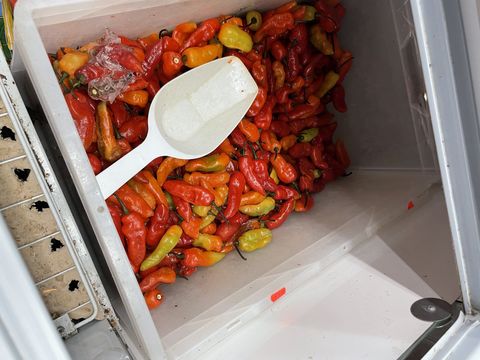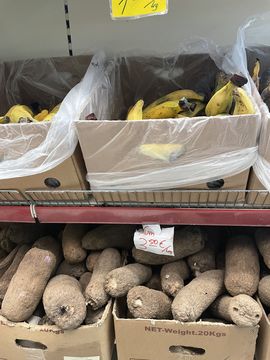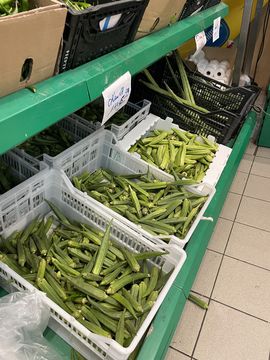It can be very worrisome to think you wouldn't have access to local dishes which you are accustomed to in your home country but worry no more because Berlin's got you covered.
How I planned to cope with german/European food
The first week I arrived in Germany, my friends and relatives repeatedly asked me how I was planning to cope with german/European food. This got me super worried for a couple of days until I came in contact with some fellow Nigerians in Berlin, and then put the question through to them. They all assured me of the availability of African stores in Berlin. I was then relaxed because I couldn’t bear the thought of eating leaves (majority of Africans believe white people eat vegetables only. Hence, the word “leaves“). On the third week of my arrival, I dashed out to search for the African store Nigerians in Berlin had earlier informed me about. I arrived at the address given to me but it was an Indian store to my surprise. Nonetheless, my instinct prompted me to enter the store. To my most excellent amusement, I started sighting food items like Okra, palm oil, groundnut, yam, pepper, milo, stockfish, Garri, crayfish, and a whole lot of typical Nigerian food. I was dumbfounded for a few minutes but later got a hold of myself and then began to pick the needed items. I became a regular customer of an Indian store thereafter.
A few months into my stay in Germany, I met a lady from Nigeria who studies at my university. She was enthusiastic about cooking African delicacies rather than eating the food consumed in Germany. She did her search some days after her arrival and then found out that there was a real African food store in an entirely different location. We went there some days after to discover more African foods such as sweet beans (Oloyin), indomie noodles, dried fish, yam flour, and many more. We bought some new foodstuffs I hadn’t eaten since I left my home country.
Mixing German vegetables with some Nigerian food
On the other hand, a friend of mine encouraged me to try mixing some vegetables in Germany with some Nigerian food like millet which also tasted more like usual „egusi“ after preparing it. I also love trying new things so I do not entirely stay away from European foods because it is also a way of embracing other people’s cultural diversity. My colleagues who knew me and my take on foreign foods when I came into Germany complimented me on my improvement in terms of European food consumption. This is basically because I constanstantly joined them at the cafeteria to take lunch. The meals are also sometimes really tasty, I must say.
As good as it is to like your comfort zone, subsequently try to leave the zone and challenge yourself with new things.
Ayomide



I am interested with that.
Germany is one of the great country in the world.I want to attend my schooling in it.all information I get is best.
Hi Tibebu, to get started, take a look at the My GUIDE page: https://www.myguide.de/en/ - there you will find a lot of information on various subjects that you can study in Germany. If you have general questions, you will most likely find an answer in our guideline on: www.study-in-germany.de/en/plan-your-studies/steps/. Good luck and best wishes from Germany, Your SiG-Team 🇩🇪👋